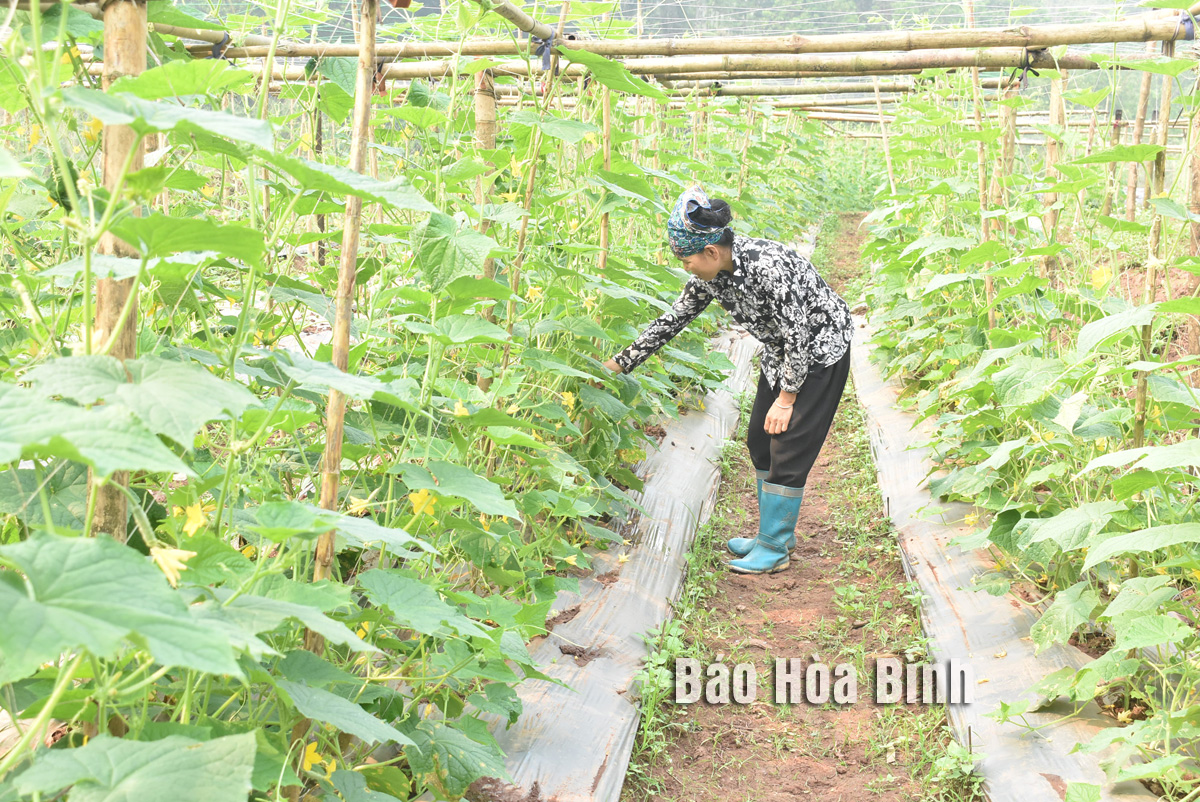
With an allocation of 44 billion VND (1.72 million USD) under the national target programme on socio-economic development in the ethnic minority-inhabited and mountainous areas for the 2021-2025 period, Hoa Binh city has invested in the target areas, creating many changes in the living conditions of local ethnic minority communities.
The safe vegetable cultivation model in
Doc Loc commune has created stable jobs for local ethnic minority residents.
The investment portfolio has catalysed
significant infrastructure improvements, with such projects as water systems in
Song and Mui hamlets of Doc Lap commune, housing support for impoverished
families, rural transportation development, and wet market repair.
Besides, the money has been used to support the
development of free-range chicken farming, safe vegetable production, and
upgrade of warehouses and vocational training facilities.
Three years into implementation, the programme
has demonstrated tangible impacts, boosting socio-economic development and
improving local material and spiritual lives. The poverty rate among
ethnic minority communities has reduced by 1.74% annually, while average annual
income has climbed to 63 million VND per person by the end of 2024. Besides,
infrastructure development has achieved remarkable milestones, with 100% of
communes having concretised roads and all ethnic minority residents accessing
electricity and clean water.
Along with relocating ethnic minority households
in areas prone to flash floods and landslides, the city has paid due attention
to doing away with temporary and dilapidated houses for poor ethnic minority
communities and households.
Furthermore, it has maintained universal
preschool education for five-year-olds and a 98% health insurance coverage rate
among ethnic minority populations.
According to deputy head of the city’s board for
ethnic affairs Nguyen Xuan Thang, the national target programme has delivered
benefits to ethnic minority communities, modernising rural infrastructure and
expanding successful production models. It has contributed greatly to improving
living conditions as well as ensuring social order and safety in ethnic
minority regions.
More than just an information technology teacher, Bui Van Nien is an inspiring figure who has nurtured the scientific curiosity and creative spirit of students in Vietnam’s ethnic minority communities.
Da Bac is the most disadvantaged mountainous district in Hoa Binh province, with ethnic minorities accounting for about 90% of its population. Over the past years, the district has mobilised resources to implement ethnic policies to improve the quality of life of local people.
In recent years, Hoa Binh province has consistently prioritised the protection, care, and education of children, particularly those from ethnic minorities and disadvantaged backgrounds, by creating a safe, healthy, and nurturing environment for their all-round development.
The Steering Committee for Tobacco Harm Prevention and Control of Hoa Binh province, in coordination with the Tobacco Harm Prevention and Control Fund, held a ceremony on May 28 in response to the World No Tobacco Day (May 31) and the National No Tobacco Week (from May 25 to 31). The event was chaired by Nguyen Van Toan, Standing Vice Chairman of the provincial People’s Committee and head of the Steering Committee.
Since 2021, the Center for Industrial Promotion and Industrial Development Consulting (CIIDC) under the Department of Industry and Trade has been implementing a school lighting model as part of the plan for using energy efficiently and economically in Hoa Binh Province in the pẻiod of 2021 - 2025. This model not only aims to improve the learning conditions and enhance the education quality, but it also promotes the message of energy saving, energy security, environmental protection and contributes to the goals of socio-economic development.
In the 2024 - 2025 school year, the entire Hoa Binh provincial education sector includes 520 educational institutions and schools. Among them are 13 ethnic boarding schools with 153 classes and 4,487 students. Four of these schools have met national standards, reaching 30.7 percent.



